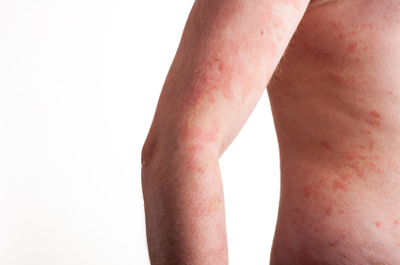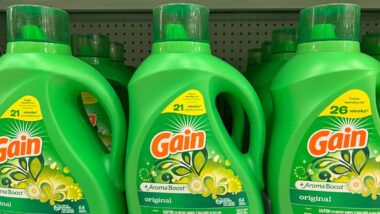
Audu lived in Belsize Park, a neighborhood in northwestern London, though she was originally born in Paderborn, a city in Rhine-Westphalia, Germany. She moved to London in 2010 to study environmental management.
In mid-October, she had a suspected infection, which caused back and head pain. She received a variety of medication for this. Toxic Epidermal Necrolysis is often caused by a reaction to relatively common medications, including painkillers and antibiotics. The day after she received her prescriptions, Audu suffered from a blistering, painful rash.
Audu’s symptoms rapidly escalated. The rash gave way to large patches of skin dying and sloughing off, leaving damage very similar to thermal burns. The damage left her with an increased risk of hypothermia and infection.
Due to her death, the University College London Hospital held an inquest to make certain that nothing was done wrong. Concerns over hypothermia were raised by her surviving aunt since Audu was transported at one point without additional heating equipment. Other concerns were raised that the drugs she was originally prescribed may have been improper, or that UCLH physicians did not take the proper steps to care for her.
The inquest ultimately found that UCLH did nothing wrong. The ultimate cause of death was listed as multiple organ failure brought by TEN, not hypothermia or other complications that the hospital could have prevented. It was ruled that TEN is a very rare reaction, making it very hard to predict which people will develop the reaction, and to which drugs. It was also ruled that since so little is known about TEN, physicians had very few treatment options, none of which could have unequivocally treated or controlled the illness.
TEN and the related disorder Stevens Johnson Syndrome (SJS) are autoimmune reactions. In these reactions, ordinarily-safe drugs cause the immune system to go haywire and start attacking the skin. This causes escalating damage to the skin, from blisters to the burn-like wounds just like what Audu suffered. It can also attack the eyes, and even the internal organs, as it did in Audu’s case. Roughly 40% of patients with TEN die from it. However, even survivors are left with permanent scarring, which can cause blindness and impaired organ function.
Lawsuits have been filed against drug manufacturers by people who have developed TEN and its “milder” form, SJS. These SJS lawsuits allege that drug manufacturers are aware of the risk of life-threatening autoimmune reactions like SJS/TEN, and did not do enough to protect the public.
In general, SJS lawsuits are filed individually by each plaintiff and are not class actions.
Do YOU have a legal claim? Fill out the form on this page now for a free, immediate, and confidential case evaluation. The attorneys who work with Top Class Actions will contact you if you qualify to let you know if an individual lawsuit or class action lawsuit is best for you. Hurry — statutes of limitations may apply.
ATTORNEY ADVERTISING
Top Class Actions is a Proud Member of the American Bar Association
LEGAL INFORMATION IS NOT LEGAL ADVICE
Top Class Actions Legal Statement
©2008 – 2024 Top Class Actions® LLC
Various Trademarks held by their respective owners
This website is not intended for viewing or usage by European Union citizens.
Get Help – It’s Free
Help for Victims of Stevens Johnson Syndrome
If you or a loved one were diagnosed with Stevens Johnson Syndrome (SJS) or toxic epidermal necrolysis (TEN) after taking a prescribed or over-the-counter medication, you may be eligible to take legal action against the drug’s manufacturer. Filing an SJS lawsuit or class action lawsuit may help you obtain compensation for medical bills, pain and suffering, and other damages. Obtain a free and confidential review of your case by filling out the form below.
An attorney will contact you if you qualify to discuss the details of your potential case at no charge to you.
Oops! We could not locate your form.












